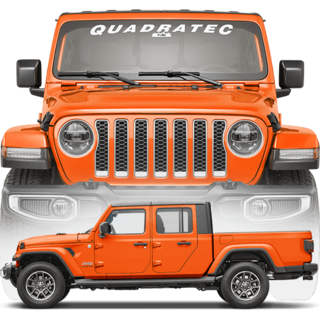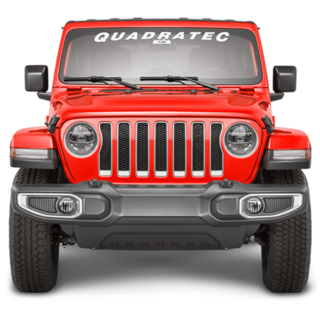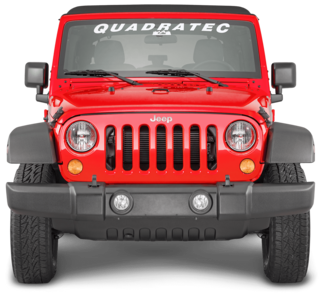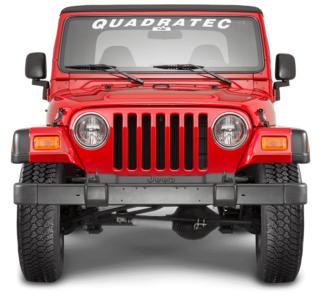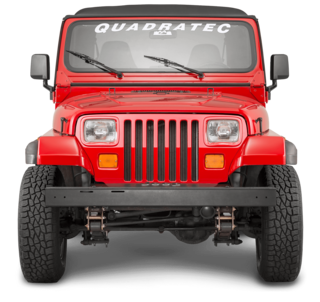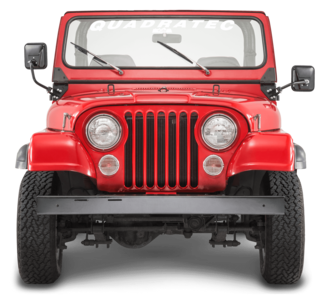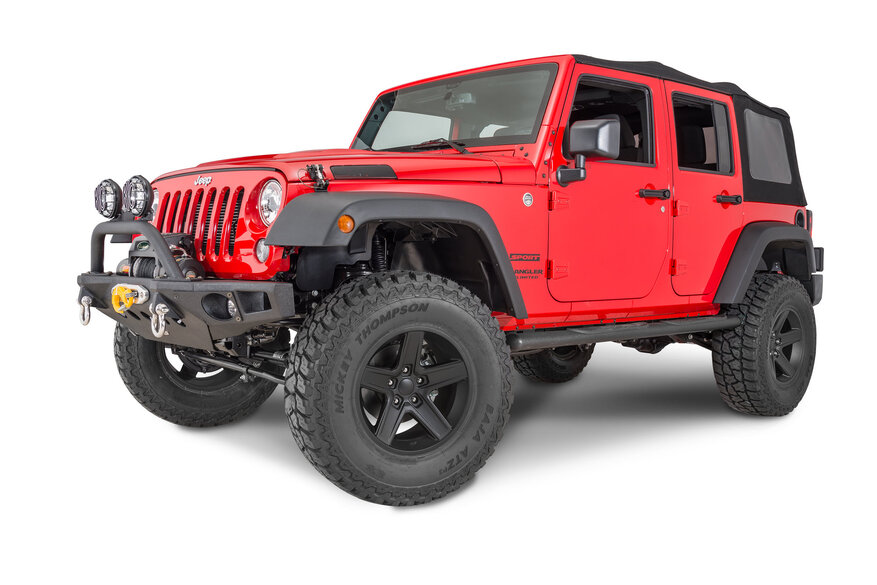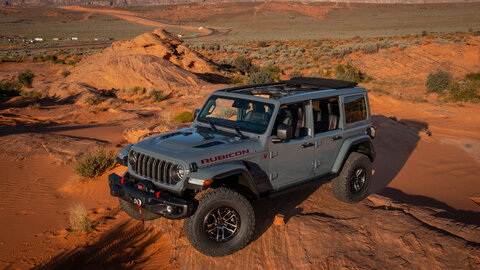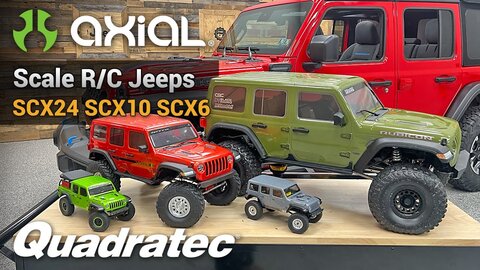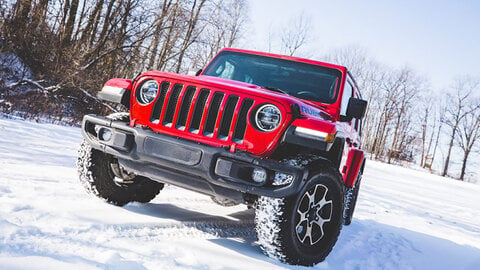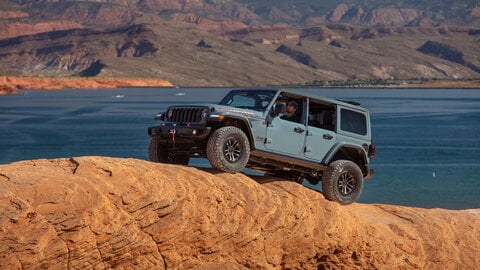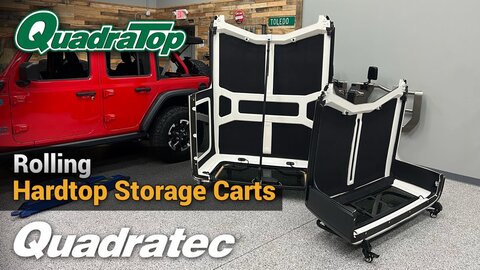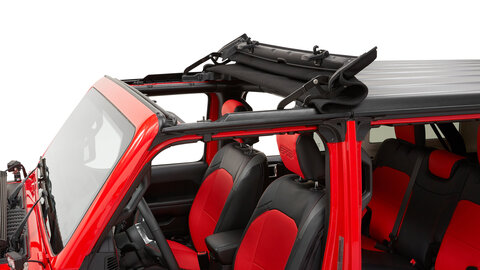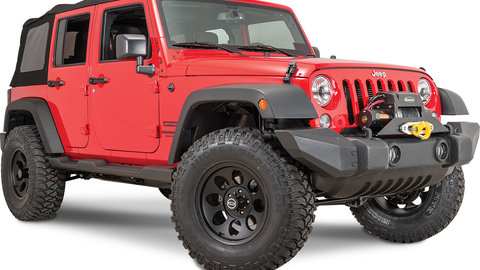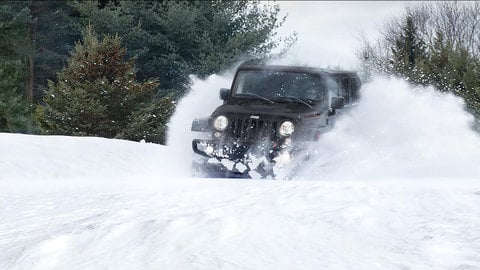by Matt Konkle
Managing Editor
Practical. Sensible. Efficient. For many Jeep owners, those three words have long described their feelings about the performance of their vehicle’s wheels.
Just something that grips tires in place, does the job without too much issue and is not anything too outlandish or unpleasant.
And so when it came to modifications on the Jeep, replacing factory wheels was not often considered until either something happened to a wheel, or swapping to larger tires made the current wheels useless.
However, over the past few years, that thought process changed as more and more people began to see Jeep alloy wheels as an excellent alternative to factory because they are lighter, have way more customization options and are the perfect choice when adding larger wheels and a suspension lift.
Not coincidentally, more and more manufactures saw this as well and these days alloy wheels dominate the aftermarket wheel category. Sure, steel wheels have their place for the hardcore Jeep off-roader because they tend to be slightly more cost-efficient, and can be hammered back into place when dented.
But as alloy wheel costs drop lower, and engineering advancements create stronger wheels that can hold up well against tougher trail conditions, even those advantages are not really advantages any longer for steel versus alloy.
Now, one thing to remember is you should always know your vehicle’s tire size and bolt pattern before purchasing new wheels, as not all vehicle’s are created equal. And the last thing you want to do is find something you like, only to realize later that it is not compatible with your tires or vehicle.
So, if you are thinking about making a switch to your Jeep’s wheels, here are the top reasons alloy wheels are an excellent choice. Additionally all Quadratec Wheels are currently on sale with a 'Buy Four, Get One Free' Offer.
Weight
One of the best things about alloy wheels for your Jeep is weight. That’s because not only are these wheels substantially lighter than steel versions, but many aftermarket wheels weigh less than factory alternatives as well.
Most alloy wheels are made with either aluminum or magnesium, allowing engineers to shave a good amount of weight off the wheel versus steel alternatives — all without compromising the wheel’s performance.
This weight savings is perfect for those who already have swapped out factory bumpers for heavier aftermarket ones, added a winch, tire carrier, storage rack, or some other beefier component. It also allows for better heat distribution when braking and, over time, puts less stress on your Jeep’s suspension components.
Additionally, while it won’t be an enormous difference, shedding some extra pounds will certainly help out your engine a bit and give your vehicle better acceleration, braking and slightly higher fuel economy.
Offset
Wheel offset is considered the distance from the center of your wheel to its mounting surface, which is the part of the wheel that comes together with the rotor on installation. This measurement helps define where the wheel will sit and is typically measured in millimeters.
The higher the offset, the more inward the wheel will install, leading to a narrower vehicle stance and less clearance between the suspension and your tire’s inside edge. The lower the offset, the more outward it will install which leads to a wider vehicle stance and more clearance between tire and suspension. This, generally, is better for those who have added a suspension lift along with larger tires.
From the factory, most Jeep wheels have a positive, higher offset as designers spent all kinds of hours making sure there was enough clearance between the wheel and tire, and items like your tie-rod ends, brake calipers, fender well, frame and other suspension components.
Many alloy wheels, however, are an excellent choice to lower that offset and help move the wheel away from the body — ideal if larger wheels and a suspension lift are in your plans.
Backspacing
So what is backspacing then, compared to offset?
Well, wheel backspacing is a related measurement, but a bit more complicated as it is the distance from your wheel’s inside edge to its mounting face - equal to half the wheel’s width plus offset, plus a half inch.
Rims with more backspace have less inside wheel clearance and can potentially rub up against the vehicle’s suspension, steering system and other vehicle components. Less backspace on a wheel means more inside wheel clearance and little risk of rubbing. Again, those who have (or are planning) on lifting their vehicles and adding larger tires, should look for wheels with lower backspacing.
And like they are with offset, alloy wheels generally also provide better backspacing options than factory versions to help make sure you reduce the risk of new, larger tires rubbing against suspension components.
Customization
These days, alloy wheels make up the majority of wheels in the Jeep aftermarket landscape. This means when it comes to finding a look that is, well, more you, than say your current factory wheels, then there are plenty of alternatives available for customization.
Perhaps it is a certain spoke design, or maybe it is a throwback look that speaks to your Jeep nostalgia. Maybe it is even a certain color like white, gunmetal or silver which makes your new Jeep wheels simply stand out from others in your Jeep club.
From basic to stylish, because of its material, engineers are able to create all kinds of designs to appeal to all types of owners.
Corrosion Resistance
Not many wheel buyers out there sit down and consider rust resistance when making a purchasing decision. But while most aluminum wheels have creative and interesting designs which allow you to customize appearance, that alloy material is also more resistant to corrosion and rust than other types of wheels.
So for those out there living in areas that experience all four seasons, or for those who take their off-roading seriously, these wheels will hold up longer against salt, mud, snow, rain, and whatever else nature can throw at them than, say, steel versions.
Now, nothing is foolproof, but thanks to these wheels’ alloy material, and their manufacturing process, you can expect your alloy wheel choice to look good on the vehicle, and provide many years of excellent protection.

